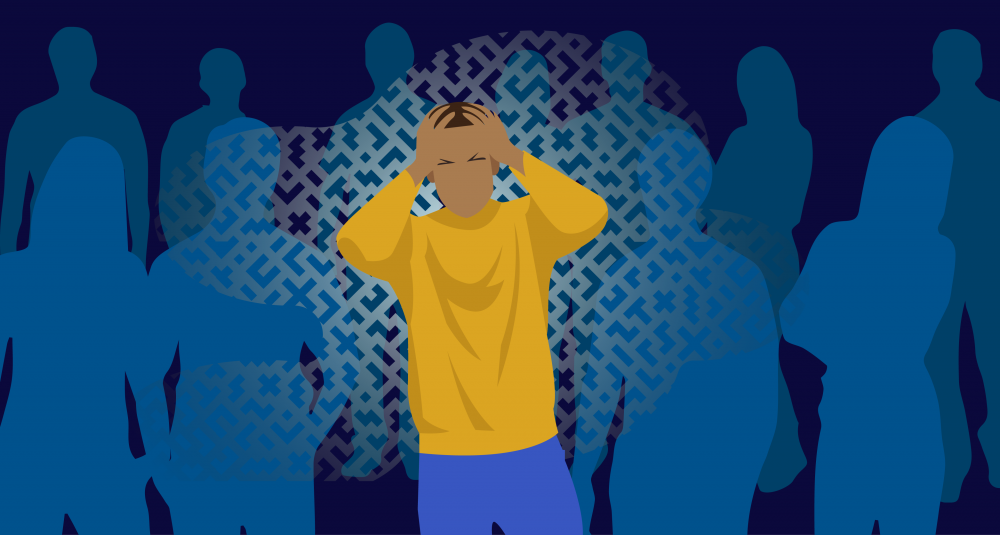How ECCM Helps Adults With Autism Improve Their Quality of Life
Care management for autism
Autism is a disorder that affects the way a person socializes, behaves, or interacts with others. There is no cure for autism, but care management can help improve social functioning, learning, and quality of life for an individual with autism.
Families with loved ones suffering from autism may worry about what life with autism looks like for an adult. Many adults with autism require continued care and intervention throughout their lives. Some patients may need little or no care management, while others may require intensive care.
Through the introduction of care management, the hope is to help each adult with autism lead as independent a lifestyle as possible.
Signs of adult autism
No two adults with autism spectrum disorder(ASD) have the same set of symptoms, nor do they experience them with the same intensity. While some people may experience mild symptoms that may make them feel a little different, others experience severe symptoms that may make their daily life difficult.
A person who has autism may not realize that they are behaving differently, but those around them may notice conduct that is a departure from social norms.
The following are the signs of adult autism:
- You find it challenging to participate in conversations.
- You are unable to read body language and facial expressions.
- Difficulty communicating your feelings and thoughts
- Difficulty in maintaining eye contact
- You're unable to keep, support, and build close friendships
- Hard to regulate emotions and how you respond to others
- You're easily upset when things are rearranged or moved
- You're unable to maintain silence where expected.
- Always following the same schedule every day of the week and don't like changes.
- Getting anxious about social situations
- Getting too close to other people, and getting upset when touched or when other people get too close to you.
Helping adults with autism
Since no two adults with autism are the same, there is no universal template for care management. Instead, the goal is to find the ideal combination of therapies and treatments that produce the best results for that individual.
Cognitive behavior therapy
Cognitive behavior therapy (CBT) is a talk therapy that can effectively treat autism for adults. Here, you will learn the connection between feelings, behaviors, and thoughts.
It may help you know the feelings and thoughts that trigger your negative reactions.
Verbal therapy
Verbal therapy can either be administered by a speech-language pathologist or an occupational therapist. Oral therapy teaches speech skills that can help an adult with autism communicate their thoughts and feelings better.
Medication
There is no specific medication that can reverse or cure autism. However, several other medications can help control particular symptoms.
Medications such as antipsychotics may help with aggression, self-harm, and behavioral problems in adults with autism.
Antidepressants may also help treat obsessive-compulsive disorder, anxiety, and depression in people with autism.
Stimulants may also help with overlapping autism symptoms, including those of ADHD.
Medications such as anticonvulsants may also be prescribed to adults with autism and suffering from epilepsy.
Applied behavior analysis
Applied behavior analysis (ABA) refers to using techniques that are intended to encourage a change of behavior. The methods address the range of social, behavioral, and language difficulties related to autism. Some techniques focus on teaching new skills and reducing problem behaviors.
ABA uses a reward system to help people suffering from autism.
Family therapy
Family members can learn how to interact with adults with autism in ways that promote their quality of life. Skills such as having polite communication, staying calm when an autistic adult is upset or panicked, and respecting personal space can significantly improve the family dynamic.
Occupational therapy
Occupational therapy (OT) focuses on teaching adults the essential skills they need in their daily life. Abilities such as cooking, cleaning, and handling money are examples of OT skills taught to an adult.
ECCM cares
Autism spectrum disorder is a complex condition without a cure. However, some care management approaches and medications can help manage and improve an autistic adult’s way of life. ECCM is wholly dedicated to connecting our clients with every resource necessary to make that happen.

